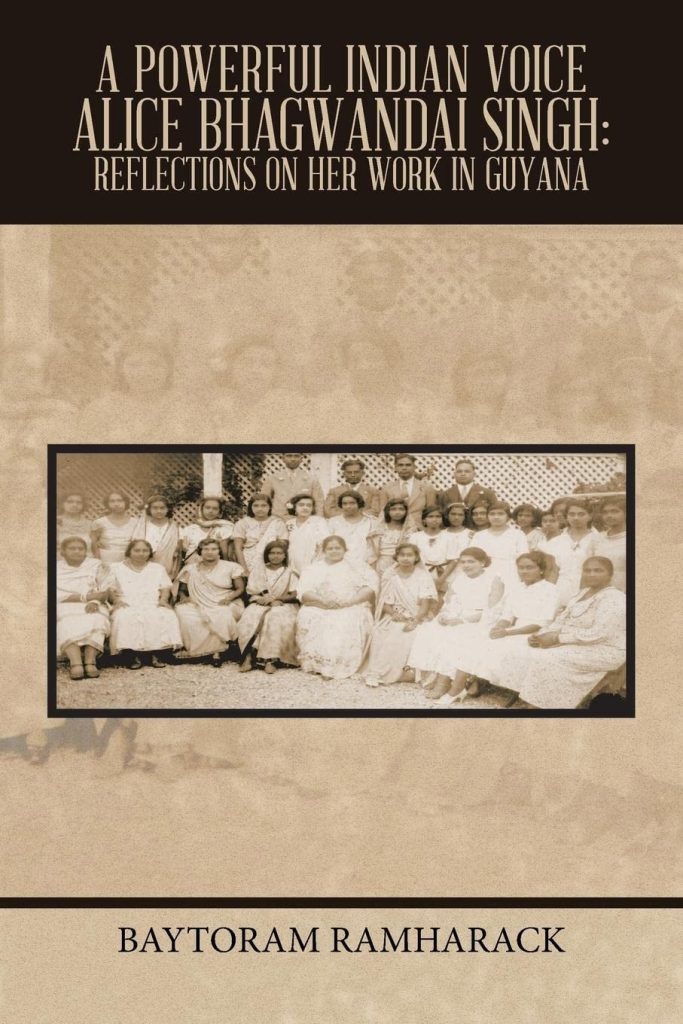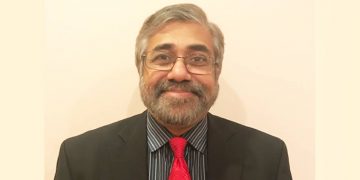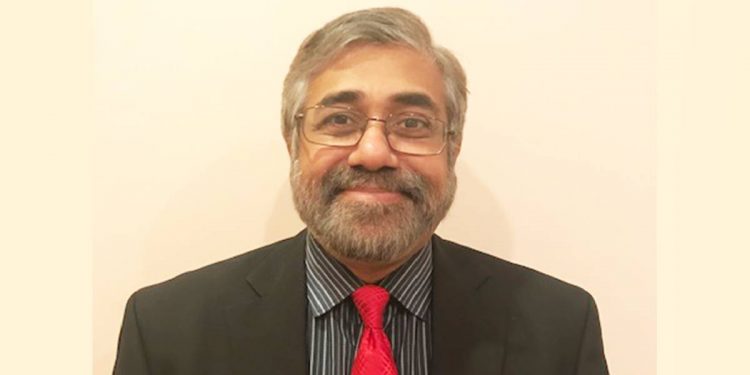Congratulations to Dr. Baytoram Ramharack whose book, A Powerful Indian Voice, Alice Bhagwandai Singh: Reflections on her work in Guyana was short listed for the 2023 Guyana Prize for Literature (Non-fiction). The book is deserving of the honors. It is one of the finest biographies I ever read, meticulously researched and exceptionally well written.
A biography not only tells us of the works and achievements of a person but of the kind of society people lived in at that time, it’s culture, and of other significant events that define the society. It helps readers to understand history and how people lived and to empathize with the person’s struggles to uplift lives of others. The biography on Alice Singh gives us an account of the contributions of a female immigrant in helping to build a better society. Alice made tremendous contributions to Guyana and Ramharack captured them nicely in the biography.
Guyanese of my age group (1960s) and later who I interacted with had never heard of Alice Singh, until the biography became available. Previously, Ramharack had spent considerable time in the archives researching Alice Singh’s husband, Jung Bahadur Singh, who was a Surgeon Superintendent on the ships that transported Indians between India and the places to which they were indentured. The book on Jung Bahadur was published a few years ago. This, I believe, represents the first time studies have been done on two iconic Indian Guyanese, both husband and wife. And prior to that research, he penned a book on former Minister BS Rai.
Ramharack’s latest book sought to explore Alice Singh’s legacy by addressing three questions, namely, a) Who was Alice Singh?, b) What role did Alice Singh play in helping to create an Indian voice in the national cultural space?, and, c) Did her work leave an enduring impact on Guyanese society, particularly on Indians?
Alice Singh was raised in a cottage in Paramaribo city in Suriname but she spent her adult life in British Guiana after marrying JB Singh. She was born on April 22, 1892 and died on Nov 2, 1970 in Guyana. One of her major accomplishments centered around her struggle in the early 1900s to create an Indian voice in the national cultural space in Guianese society. As Prof Ramharack remarked, Alice possessed a number of admirable qualities that defined her remarkable character – she was “a feminist, a cultural activist, an agent of change and a writer.”

At 15, young Alice began working with her father, Sitalpersad, in the Immigration Department (the so-called “koeliedepot”) in Suriname, where she met JB Singh. At 18, she was wedded, through arrangement, to JB (in 1910), who at the time was a compounder on indentured immigrant ships. The marriage was a lavish and extravagant affair that captured the attention of most Surinamese, given the fact that her father was a well-known language interpreter for the Dutch and Suriname’s first “Hindustani” leader. However, because Indian marriages were not legal, in either country, Alice’s marriage ceremony became a three-part affair. In her words, “I had my civil marriage, so this complied with the law of the land, (and) my church (Christian) blessing for Ma. But the real thing was in the evening, my Hindu marriage.” All of this information is revealed in Alice’s autobiography – the first one ever written by an Indian woman in the West – which dealt primarily with her family in Suriname and her ancestors from India.
Alice Singh’s cultural activities were manifested in the organization she spearheaded, the British Guiana Dramatic Society (BGDS). The BGDS was recognized for its annually organized public performances between the two world wars, mainly plays written by iconic Indians like Rabindranath Tagore as well as Ramleela.
Alice was active in other social and health organizations, as well, including of other faiths. For example, she played a leading role in the Women’s League of Social Services (founding member), Red Cross Society, Women’s Auxiliary of the Young Men’s Christian Association (YMCA), Tuberculosis Society, Girl Guides Association, Commonwealth Heart and Chest Association, and the St. John’s Ambulance Brigade. She served as a government-appointed board member of the Poor Law Commission, where she helped to improve the welfare of the poor, homeless, sick, and addicted.
Ramharack, who hails from Bohemia, Berbice, has made an enormous contribution to Indian historiography in Guyana. Kudos to him, as well as to the others who were short listed for the Guyanese Prize for Literature.




































































